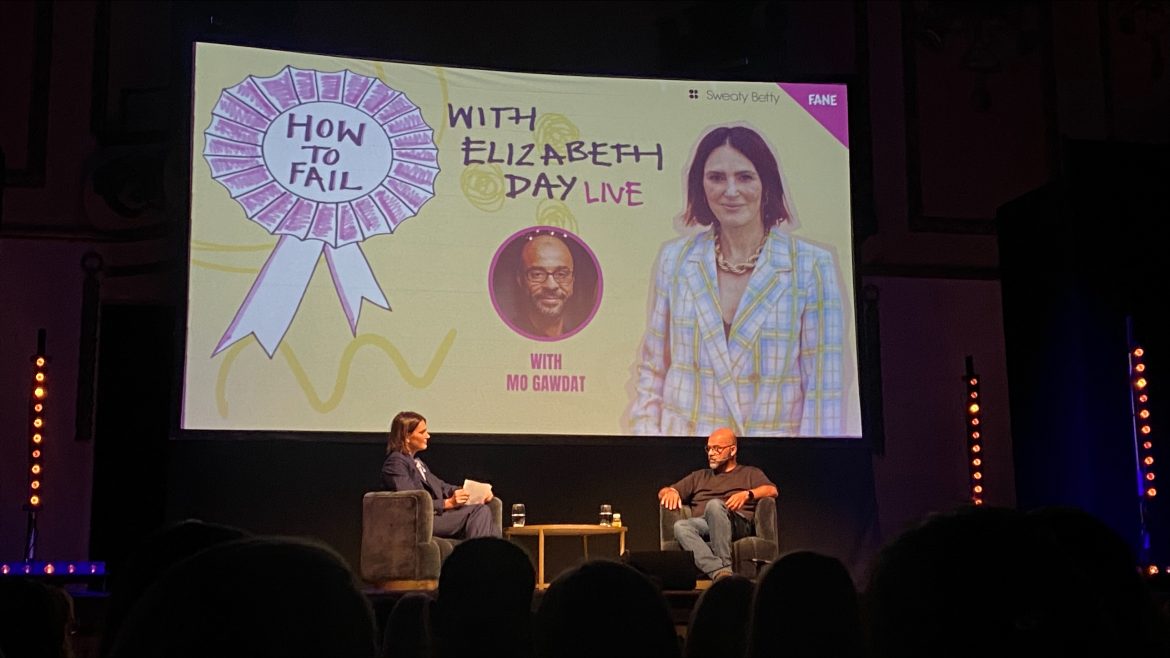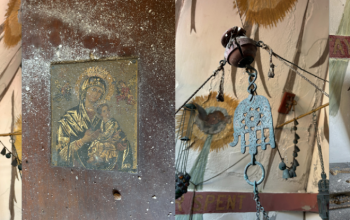Elizabeth Day’s first live recorded show of the ‘How to Fail’ podcast made for a relaxed and insightful evening.
The podcast invites guests to explore their failures in an extended interview. Day, the podcast creator and host, has interviewed a variety of people, all providing insight into their perception of failure.
At the beginning of this month, at Shoreditch Town Hall, Day interviewed Mo Gawdat, Caitlin Moran, Sophie Ellis-Bextor, and Craig David. Fans of How to Fail got the chance to listen to these special guests in person.
The phenomenal success of How to Fail is a notable irony to its premise. The podcast celebrates the things that haven’t gone right; each week Day invites a new interviewee to share their biggest ‘failures’. And after 155 episodes, thousands of followers and a book, Day invited her listeners to see the show in person.
Perhaps the clearest difference from a pre-recorded podcast was that the audience could see Day in person. Her usual calm voice translated on stage and put the hundreds of audience members at ease. Before Day could introduce her guest, she reluctantly promoted the retail company ‘Sweaty Betty’ which was met with laughter from the audience who weren’t used to hearing this commercial element in person.
Moving on from the quick advertisement, Day introduced her guest. As with her pre-recorded podcast, she included a long and thoughtful summary. The audience soon saw how meaningful these words were as Gawdat walked on stage and hugged Day.
Joining Day on debut night, entrepreneur and writer Gawdat fit comfortably into the safe environment created moments earlier. As Gawdat is a regular guest on How to Fail, appearing twice before, this interview didn’t follow the podcast’s standard structure. Usually, guests will share their three biggest failures and delve into them in depth. Instead, the already established Day and Gawdat engaged in an intimate and candid chat. Which again, created a relaxed atmosphere within the venue.
Despite his outward success as a bestselling author and former business officer of Google X, Gawdat shared the importance of inner happiness and after years of self-exploration, he said: “I’m the happiest I’ve ever been.”
Gawdat literally wrote the book on happiness. Solve for Happy (2017) became a bestselling book, helping many people on their journey to joy. He suggested “You may not have a sure pass to happiness but you have a pass to be happier.”
One of the most useful segments of the night was Gawdat’s views on negative thinking. Day prompted him to share his theory, ‘The Becky brain,’ used to combat negative thought patterns. The idea is simple, Gawdat explained: “You are not the thoughts in your head” which can be hard to come to terms with. To make it easier, Gawdat asked everyone in the audience to imagine that the critical voice belonged to an annoying girl named Becky. The audience enjoyed this simple yet useful technique.
At this point, Day further engaged with the audience by asking any Becky’s in the room to make themselves known. The sole Becky was happy to be involved.
Throughout the interview, the power of introversion was celebrated, Day and Gawdat both considered themselves to be introverts. Gawdat commented on how large the audience was at this point, to which Day responded: “But I feel like I know all of these people already.” This comment allowed the audience even further into the conversation. Which, much like the How to Fail podcast, involved all listeners and not just the two people on stage.
Gawdat later opened up on his grief over the loss of his son; he described life as a ‘quest’ on which we receive tests that are specifically difficult to us. The death of his son, Ali ,was a test most difficult for him. Gawdat has shared on this loss frequently, on podcasts, interviews and in books. He spoke briefly with Day on the subject, explaining his views on death he said: “Death is the opposite of life, it’s not the opposite of birth.”
At the end of the interview, Day welcomed the audience to ask questions. Trying to fit in as many as possible, microphones were passed throughout the hall. And Day made sure to involve those at the back. This end interaction is an obvious difference to the podcast. Not only did it allow the audience to feel heard but both Day and Gawdat saw the impact of their work providing for an emotional ending, with everyone reluctant to leave.
Luckily, for those who weren’t ready to go, Day and Gawdat stayed for a meet and greet. Answering any unheard questions and signing their books, which were available to buy at the venue.





